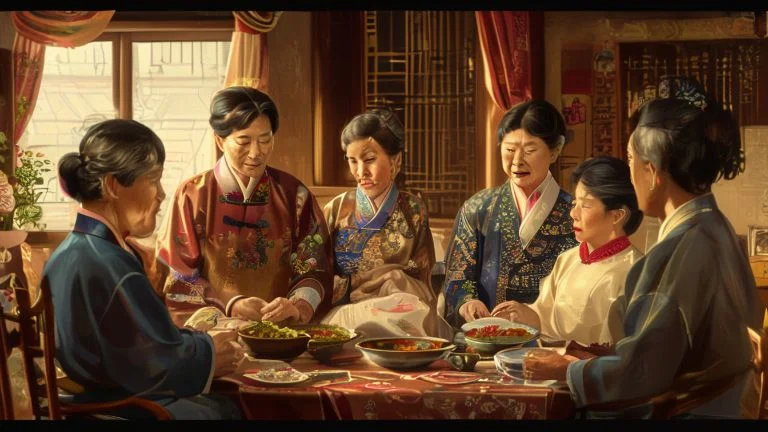The Intricacies of Scriptwriting for Popular Doramas

Scriptwriting for popular doramas (Japanese TV dramas) is a multifaceted process that blends cultural nuance, narrative structure, character development, and audience engagement into a meticulously crafted product. Doramas, known for their unique storytelling styles and emotionally charged plots, require scriptwriters to navigate cultural expectations while innovating to keep the genre fresh and relevant. Writing these scripts is far from a casual endeavor; it demands intense research, precise pacing, and an intimate grasp of character psychology tailored to appeal to diverse viewer demographics across Japan and global audiences.
At the outset, scriptwriters typically begin with foundational research to anchor their storylines in contexts that resonate authentically. This phase involves understanding social dynamics, current issues, and trending themes within Japanese society that can be reflected in the plots. Whether the story is a slice-of-life romance, a medical drama, or a suspense thriller, the writer must ensure the setting, dialogue, and character arcs reflect realism without losing dramatic appeal.
One of the fundamental challenges is balancing culturally rooted storytelling techniques with universally comprehensible narratives. Japanese dramas often utilize subtle emotional cues, understated expressions, and indirect communication, contrasting Western directness. The scriptwriter’s role includes encoding these nuances into the screenplay while ensuring international fans can still connect with the emotions and motivations of characters.
Furthermore, dorama scripts generally follow a concise episodic format, often limited to 9 to 12 episodes per season, necessitating tight plot construction. This brevity imposes strict structural discipline on the screenplay. Writers must carefully design exposition, conflict, climax, and resolution within this limited timeframe, maximizing narrative impact. For this reason, outlining each episode’s purpose and thematic contribution to the entire series is a critical step. Writers frequently develop detailed storyboards or beat sheets, breaking down scenes into precise actions and dialogue moments to maintain consistent pacing and emotional rhythm.
The character development process is equally crucial. Dorama characters frequently embody archetypes familiar to the audience but need to transcend clichés through subtle complexity. Writers invest considerable effort into creating multi-dimensional personalities with clear motivations, conflicts, and growth trajectories. This depth enhances viewer investment and often distinguishes successful doramas from forgettable ones. Background stories, personal dreams, fears, and relational dynamics are meticulously infused into the script to offer relatable and compelling narratives.
Dialogue writing for doramas exemplifies a particular artistry. It blends natural vernacular with dramatic overtones, often weaving poetic references or culturally specific idioms that enrich subtext. Writers carefully calibrate dialogue length and tone to suit scene intensity and character voice, sometimes employing silence or pauses as powerful storytelling elements aligned with Japanese communication styles.
Beyond the internal narrative construction, scriptwriters must also collaborate closely with directors, actors, and producers to align creative visions. Revisions are common, adjusting scripts based on practical concerns like casting choices, location constraints, or performance interpretations. This iterative process requires flexibility and prompt responsiveness, emphasizing teamwork as essential to final script quality.
Step-by-Step Process of Writing Dorama Scripts
The journey from concept to final draft involves a structured yet creative workflow. Below is a detailed outline of a typical scriptwriting process for a popular dorama, offering insights into each critical phase.
- Idea Generation and Theme Establishment: Writers brainstorm concepts rooted in contemporary issues or timeless themes, such as love, family, career struggles, or societal pressure. Picking a clear thematic focus sets the tone and direction for the entire series.
- Research and Contextual Analysis: Extensive background work on relevant social, historical, or cultural elements helps ensure authenticity. Writers might conduct interviews, read academic literature, or analyze existing media representations.
- Plot Structuring and Episode Breakdown: Writers draft a comprehensive arc encompassing the full series length, dividing the narrative into episodic segments with individual conflicts and resolutions that feed into overarching storylines.
- Character Profiling and Biography Development: Each character is fleshed out with personality traits, history, goals, and relational ties. This groundwork guides dialogue writing and scene interactions.
- Writing the Initial Script Drafts: Initial screenplays are created focusing on core scenes, ensuring logical flow and emotional coherence. These drafts are often raw and prioritized for content over polish.
- Review, Revisions, and Collaborative Feedback: Scripts undergo multiple review rounds, involving input from directors, production teams, and sometimes actors. Adjustments include rewriting dialogue, altering pacing, and refining scenes.
- Finalization and Script Lock: The script is finalized after thorough vetting, with locked versions forwarded for production scheduling and shooting preparations.
This stepwise process is dynamic, with iterations common at all stages. Often, cultural consultants or language specialists join the team to refine idiomatic expressions and ensure narrative sensitivity, especially when themes touch on taboos or socio-political issues.
Cultural Nuances and Emotional Storytelling Techniques
Understanding cultural subtleties is an essential aspect of writing dorama scripts. Japanese drama storytelling often hinges on emotional understatement, indirect communication, and the use of symbolism. Scriptwriters incorporate elements like seasonal metaphors, traditional cultural references, and societal etiquette to enrich storytelling.
For example, the use of seasonal changes—cherry blossoms representing beginnings or fleeting beauty, autumn leaves symbolizing change or impermanence—is a common tool to subtly underline characters’ emotional states or plot transitions. Writers often use these motifs poignantly in scene descriptions and dialogue subtext, inviting viewers to decode deeper meanings beyond surface-level interactions.
In addition, Japanese society’s respect for harmony and social hierarchy influences dialogue and character behavior. This manifests as characters often avoiding direct confrontation, expressing feelings cautiously, and prioritizing group consensus. Writing scripts that authentically depict these dynamics while keeping the narrative engaging challenges writers to use nuanced dialogue and layered character exchanges effectively.
Emotional storytelling in doramas frequently relies on internal conflict and gradual character transformation. Unlike high-octane dramatic reveals typical in some international TV formats, doramas prefer slow-building emotional tension, characterized by quiet moments, introspection, and symbolic actions. Writers skillfully craft scenes where what is unsaid holds as much weight as spoken words, prompting actors to deliver restrained yet impactful performances.
For instance, a lingering glance, a brief hesitation before answering, or a subtle change in tone often conveys more than explicit dialogue. This style requires scripts to tightly control pacing and scene setting to allow moments of silence or contemplation space on screen. Scriptwriters thus act not merely as dialogue creators but as architects of emotional atmospheres, embedding cues for directors and actors to amplify the intended impact.
Practical Examples and Case Studies of Successful Dorama Scripts
Exploring concrete examples helps illustrate how scriptwriting principles translate into production success. To better understand these nuances, we’ll analyze two popular doramas recognized for their exemplary scripts.
Case Study 1: ‘Good Doctor’ (2018)
“Good Doctor” tells the story of a young pediatric surgeon with autism spectrum disorder. The script, crafted with extensive medical consultation and sensitivity training, carefully balances medical technicalities with deep human drama. Writers highlight the protagonist’s challenges through authentic dialogue and gradual character development, presenting social prejudice and personal triumphs without resorting to clichés or over-dramatization. The script employs scene pacing that parallels the protagonist’s emotional growth, with episodic cliffhangers that tease future revelations while maintaining realism.
Case Study 2: ‘Nigeru wa Haji da ga Yaku ni Tatsu’ (We Married as a Job) (2016)
This romantic comedy uses unconventional social situations to explore themes of marriage, independence, and societal expectations. The script expertly blends humor with subtle social critique, integrating witty dialogue with character evolution. Writers use situational irony and carefully plotted misunderstandings to drive the narrative forward while humanizing characters through relatable, nuanced interactions. The script’s tight episodic structure ensures each episode introduces a new conflict or character insight, supporting continual viewer engagement.
Both cases demonstrate the importance of research, cultural insight, and attention to pacing. They reveal how the right balance of emotional depth and storytelling mechanics can elevate narrative impact.
Essential Skills and Tools for Dorama Scriptwriters
Writing scripts for doramas demands a distinctive skill set combining creativity, cultural literacy, and technical expertise. Competency in narrative theory, dialogue crafting, and character psychology is fundamental, supplemented by mastery of screenplay formats and software.
Core Skills Include:
- Storytelling mastery: Clearly structuring stories that maintain viewer interest over limited episodes.
- Cultural competency: Embedded understanding of social norms, language nuances, and contemporary issues.
- Character design: Deep knowledge of human behavior and emotional dynamics to create genuine personalities.
- Collaborative communication: Ability to work with directors, producers, and actors, adapting scripts based on feedback.
- Technical proficiency: Familiarity with screenplay software such as Final Draft, Celtx, or Japanese-specific tools.
Supporting software tools aid efficiency and precision. Final Draft remains a professional standard worldwide, facilitating scene numbering, revision tracking, and formatting compliance. Celtx offers cloud-based collaboration, ideal for remote teams, while dedicated Japanese writing tools accommodate specific character sets and text alignment preferences.
Moreover, scriptwriters often leverage storyboarding apps or spreadsheets to map episode structures and track character arcs visually. Effective use of these tools supports the complex narrative weave typical of doramas, ensuring coherent story progression.
Challenges and Solutions in Dorama Scriptwriting
Scriptwriters face multiple challenges when creating dorama content. First, the constraint of episode length forces a concentrated narrative focus, requiring elimination of extraneous subplots while retaining rich character development. Solutions involve rigorous outlining and prioritization of core story elements.
Second, balancing emotional subtlety with clarity can be difficult when appealing to diverse audiences, including international viewers less familiar with Japanese cultural cues. Writers mitigate this by blending universal themes like love and ambition with culturally specific details, offering layered storytelling accessible at multiple levels.
Another challenge stems from production dynamics. Changes in cast availability, budget limits, or directorial vision may require script adjustments mid-process. Flexibility and rapid rewriting skills are vital. Scriptwriters maintain variant drafts and modular scenes ready for substitution, allowing agile responses without compromising story integrity.
Additionally, addressing sensitive societal topics responsibly without alienating viewers or inviting controversy demands careful handling. Writers cooperate with cultural consultants and sensitivity readers to navigate ethical considerations effectively.
Comparative Table: Differentiating Scriptwriting Elements in Doramas vs. Other TV Dramas
| Aspect | Dorama Scripts | Other TV Drama Scripts |
|---|---|---|
| Episode Length | Shorter (typically 9-12 episodes) | Longer seasons, may exceed 20 episodes |
| Pacing | Concise and emotionally incremental | Varies; often more fast-paced or multi-threaded |
| Dialogue Style | Subtle, indirect, culturally nuanced | Direct, varied by genre and region |
| Cultural Elements | Deeply embedded; symbolism and social norms critical | Variable; often more generalized or internationalized |
| Character Archetypes | Reflect Japanese societal roles and expectations | Broader archetype use, often more archetypal or exaggerated |
| Emotional Tone | Reserved, introspective, symbolic | Wide range; often overt or dramatic |
| Script Revision Process | Highly collaborative with multiple stakeholders | Often confined within production team |
This table clarifies the distinct features that distinguish dorama scripts internationally. These differences reflect broader cultural storytelling traditions and production practices.
Key Tips for Aspiring Dorama Scriptwriters
Based on extensive industry insights and practical experience, here are essential recommendations for writers seeking to enter dorama scriptwriting:
- Immerse in Japanese culture: Study language subtleties, social conduct, and cultural references foundational to authentic storytelling.
- Watch a wide range of doramas: Analyze successful series to understand different narrative rhythms and character treatment.
- Learn screenplay formatting: Master industry-standard script formatting tools and conventions to ensure professional presentation.
- Start with short scripts: Practice through writing one-episode scripts to develop pacing and dialogue skills.
- Network with industry professionals: Join writers’ groups, attend script workshops, or participate in online forums focused on Japanese drama writing.
- Be adaptable: Expect feedback and revisions; flexibility improves your scripts and opens collaboration opportunities.
By adopting these strategies, novice writers can build the foundation required to thrive in the competitive dorama market.
FAQ - Behind the Scenes: Writing Scripts for Popular Doramas
What makes scriptwriting for doramas different from other TV dramas?
Dorama scriptwriting emphasizes concise episodic structure, cultural nuance, and emotional subtlety. Scripts weave traditional Japanese storytelling techniques, often favoring understatement and symbolism over overt exposition, which differs markedly from more direct or fast-paced styles typical in many international dramas.
How many episodes does a typical dorama season have, and how does this affect scriptwriting?
A standard dorama season usually has between 9 and 12 episodes. This limited length demands tight story arcs, focused character development, and precise pacing within scripts to effectively develop the narrative without filler content.
What role does cultural context play in writing dorama scripts?
Cultural context is vital; scripts incorporate Japanese social norms, language idiosyncrasies, and symbolism to create authentic narratives. Writers must balance this with accessibility for broader audiences by emphasizing universal themes alongside culturally specific elements.
Can scriptwriters collaborate with others during the dorama writing process?
Yes, collaboration is highly common and necessary. Writers frequently revise scripts based on feedback from directors, producers, cultural consultants, and actors, ensuring the script aligns well with production realities and creative visions.
What software tools are typically used by dorama scriptwriters?
Popular tools include Final Draft and Celtx for screenplay formatting and revisions. Some also use Japanese-specific typing and scriptwriting software that supports language conventions and character sets essential to writing in Japanese.
Writing scripts for popular doramas requires mastering concise storytelling, cultural nuance, and character depth within limited episodes. Scriptwriters integrate traditional Japanese emotional subtlety with universal themes, producing engaging narratives that resonate locally and globally through iterative collaboration and detailed research.
Writing scripts for popular doramas involves a complex, culturally sensitive process that balances narrative structure, emotional storytelling, and precise character development within constrained episode formats. Successful scriptwriters harmonize traditional Japanese storytelling elements with universal themes, ensuring resonance with both domestic and global audiences. The blend of thorough research, iterative collaboration, and technical skill defines excellence in dorama scriptwriting.






